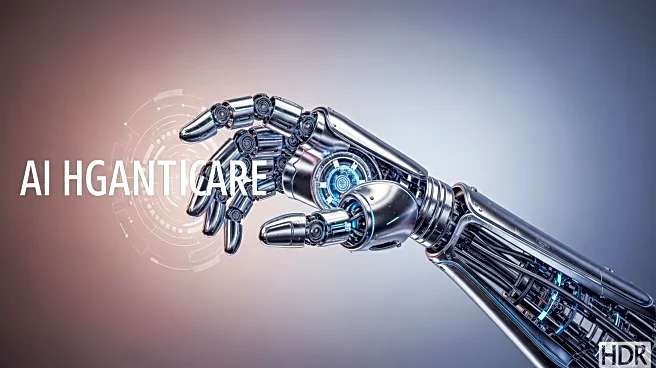What is the story about?
What's Happening?
Agentic AI, a form of autonomous task-specific systems, is gaining traction in the healthcare industry as a potential solution to reduce costs while maintaining care quality. However, Lily Li, founder of Metaverse Law, warns that this technology could lead to a legal gray area concerning liability and patient safety. Agentic AI systems operate with minimal human intervention, which could result in errors such as incorrect prescription refills or mismanagement of emergency department triage, potentially causing injury or death. These scenarios highlight the shift in responsibility from licensed providers to AI systems, raising questions about medical malpractice insurance coverage when no licensed physician is involved. Li emphasizes the need for healthcare organizations to address these risks by reviewing data quality and implementing guardrails to limit AI actions.
Why It's Important?
The integration of agentic AI in healthcare could significantly impact the industry by potentially lowering costs and improving efficiency. However, the risks associated with AI errors and the lack of clear liability could lead to increased harm or excess deaths compared to human physicians. This situation necessitates a reevaluation of existing medical malpractice frameworks and insurance policies to accommodate AI-driven decisions. Additionally, the potential for cybercriminals to exploit these systems underscores the need for robust security measures. The broader implications of agentic AI in healthcare hinge on the industry's ability to establish trust and accountability, which are crucial for the safe and effective use of these technologies.
What's Next?
Healthcare organizations are advised to incorporate agentic AI-specific risks into their risk assessment models and policies. This includes reviewing data quality to eliminate errors and biases, setting limitations on AI requests, and implementing geographic restrictions and filters for malicious behavior. AI companies are encouraged to adopt standard communication protocols for encryption and identity verification to prevent misuse. The future of agentic AI in healthcare will depend on the industry's ability to build trust and accountability, ensuring that these systems contribute positively without compromising patient safety.
Beyond the Headlines
The ethical implications of agentic AI in healthcare are profound, as the technology challenges traditional notions of medical responsibility and patient care. The shift from human to AI decision-making raises questions about the moral accountability of machines and the potential dehumanization of healthcare. Long-term, the adoption of agentic AI could lead to a paradigm shift in how healthcare services are delivered, necessitating new legal and ethical frameworks to address these changes.














